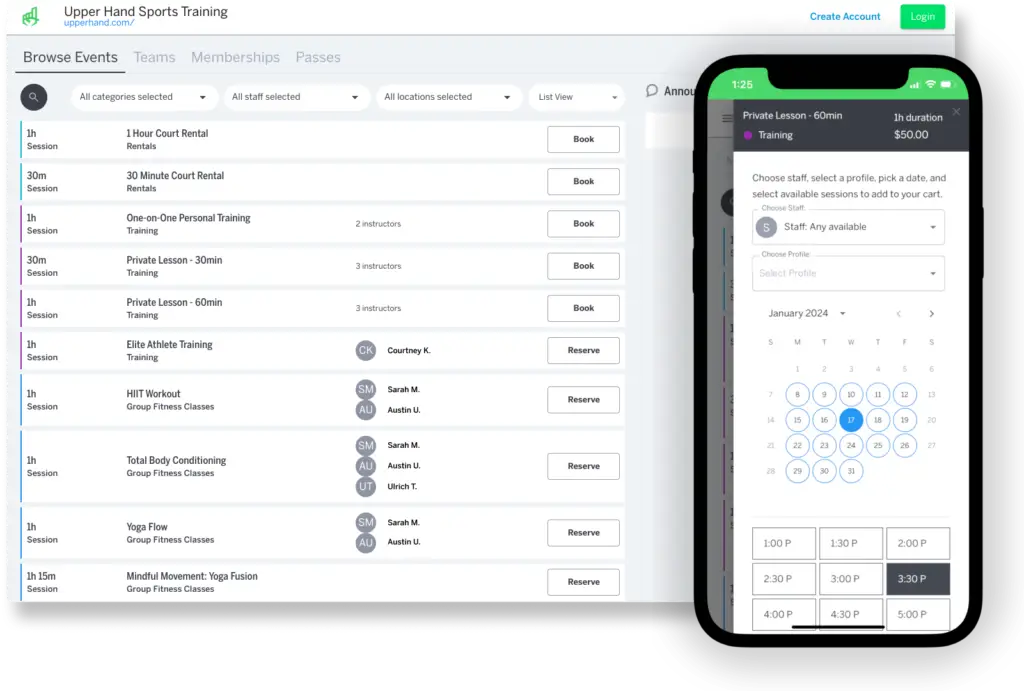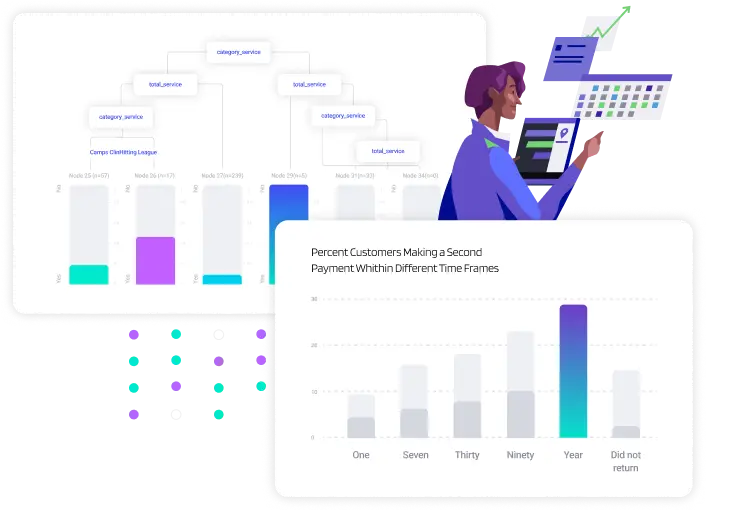
You know that moment when everything at the club is running smoothly—tee times are perfectly spaced, staff isn’t scrambling behind the scenes, and members are

Nowadays, having the right tools can make all the difference in sports management. For sports trainers, facility owners, business owners, and coaches, a top-notch court booking app is like having a secret weapon.
But with so many options available, knowing which features to look for can be overwhelming. In this guide, we’ll break down the 5 essential features of court booking apps in 2024, making it easy to choose the best one for your needs.
From customizable booking to integrated communication tools, we’ll explore the key functionalities that will take your sports facility to the next level. Let’s dive in.
A Court Booking App is like a digital calendar for sports courts or playing fields. It lets sports trainers, facility owners, and coaches, easily manage and schedule when their courts or fields are being used.
For sports trainers and coaches, it means you can book specific times for training sessions with your teams or clients. You can see when the court or field is available and reserve it for practice sessions.
For sports facility owners, it means you can keep track of who is using their courts or fields and when. You can manage bookings, avoid double bookings, and ensure their facilities are used efficiently.
For sports business owners, it means you can streamline their operations by having a centralized system for managing court or field bookings. You can improve client experience by making it easy for people to book and pay for their sports activities online.
Overall, a Court Booking App simplifies the process of scheduling and managing sports facilities, making it convenient for clients.

A court booking app is important for several reasons:
Managing multiple courts can be challenging, but with advanced court management features, it becomes a breeze. Look for options to set different pricing tiers for premium courts, block off courts for maintenance or events, and assign specific courts to individual sports programs or teams. This flexibility ensures optimal use of your facility’s resources and maximizes revenue potential.
Visualizing court availability is essential for efficient scheduling. An advanced court booking app should easily see who is scheduled for the day and book new appointments that allow clients to see real-time availability, view detailed court layouts, and select their preferred location within the facility. This simplifies the booking process and enhances the client experience by providing availability options.
Leveraging the power of artificial intelligence (AI), some court booking apps can provide personalized recommendations and insights based on your business operation. Whether it’s generating reports to gain insights that lead to growth or supporting both day-to-day operations, AI-powered features enhance the overall client experience and business growth.

Communication is key to successful sports management. Look for a court booking app with integrated communication tools like in-app messaging, email notifications, and SMS alerts. These features allow you to communicate with clients quickly, send reminders about upcoming bookings, and provide updates about facility policies or events.
Your court booking app should offer dynamic pricing options based on demand, time of day, and special events to stay competitive. Additionally, the ability to provide discounts and promotions can help attract new clients and keep existing ones coming back for more. Look for features that allow you to create custom discount codes, implement loyalty programs, and boost revenue.
By incorporating these features into your court booking app, sports trainers, facility owners, and coaches can ensure you will have the tools to succeed in 2024 and beyond.
Whether you’re looking to streamline operations, boost revenue, or enhance the client experience, a feature-rich court booking app is your key to unlocking the full potential of your sports training business.